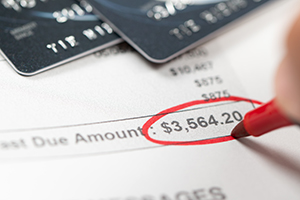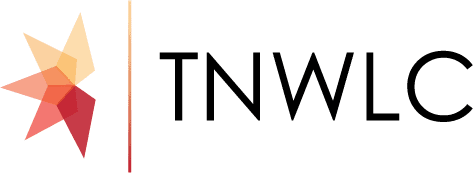Both homeowners and board members must familiarize themselves with the responsibilities and positions of the HOA board. This way, homeowners can keep their leaders in check, and board members can fulfill their roles effectively.
What is the HOA Board of Directors?
Every homeowners association has a set of leaders known as the HOA board of directors. This board is responsible for managing the association and ensuring operations run smoothly. Board members have a duty to serve the community and work in its best interest.
HOA Board vs Condo Association Board
Condo associations work in much the same way as homeowners associations. In these communities, a condo board also exists. The condo board is responsible for the same things as an HOA board would be. The term “HOA board” can also refer to the condo board.
Responsibilities of HOA Board Members
State laws and the governing documents of an HOA should outline the responsibilities of board members. As previously stated, HOA board responsibilities are the same as condo board member responsibilities. Generally, these responsibilities include the following:
1. Dues Collection
A chief HOA board of directors’ responsibility is dues collection. Homeowners pay regular fees to the association, and these fees fund the community’s shared expenses. Board members are responsible for collecting these fees on time and in full.
Moreover, if a homeowner fails to pay their dues, the board must enforce its collection policy. This typically includes charging a late fee or interest, suspending the owner’s privileges, taking legal action, placing a lien on the home, and even foreclosing on the property.
2. Financial Management
Board members are responsible for managing the association’s finances. This includes planning the annual budget, preparing financial reports, filing tax returns, paying vendors for their services, facilitating audits, and maintaining the reserves. Many of these responsibilities require the help of a third-party professional, such as an accountant or an HOA manager.
3. Rule Enforcement
Rule enforcement is another critical responsibility of HOA board members. HOA and condo boards must make sure residents adhere to the rules. If a resident violates a rule, the board must take enforcement actions. This can include fines and the temporary revocation of privileges.
4. Maintenance and Repairs
When it comes to HOA board duties, common area maintenance should not be left out. The HOA, through the board, must ensure that common areas remain clean and functional. This involves conducting regular inspections, performing preventive maintenance, and making necessary repairs.
Of course, board members can’t do all of these things alone. Most communities require the help of trained professionals and technicians, which is where the next responsibility comes into play.
5. Vendor Management
The HOA board is responsible for selecting, hiring, and coordinating with vendors. Vendors make association management easier by helping with maintenance, repairs, insurance, legal work, and other related tasks. Board members must follow a strict selection process when hiring a vendor and also monitor their performance after the fact.
6. Homeowner Communication
One of the more neglected HOA board members responsibilities is homeowner communication. Board members must always keep residents informed on the latest announcements and community affairs. They must send proper notice and keep bulletins updated.
Communication is a two-way street, of course. This means that board members must also listen to residents. The HOA board must provide residents with a clear and accessible way to file complaints, provide feedback, and ask questions.
Typically, the board allows residents to offer input or express their concerns at an HOA board meeting. Some HOA governing documents even require this. Similarly, several states mandate an open comment period during board meetings. In Washington, DC, Section 42–1903.03 of the Condominium Act states that condo boards must allow unit owners to comment at these meetings.
7. Dispute Resolution
Disagreements can happen in any community, but it is the board’s job to make sure these disagreements don’t turn into legal battles. Board members must resolve conflicts between homeowners and the HOA. Some neighbor-to-neighbor disputes would also require the board to intervene to prevent escalation.
What are the HOA Board Positions?
In an HOA, the board further consists of officers who have their own designated roles. Here are the positions of the HOA and condo association board members.
- President. The HOA president is responsible for leading board meetings and overseeing the implementation of board decisions. They essentially act as the board’s representative.
- Vice President. The VP assumes the role of the president when the latter is otherwise incapable or indisposed. They support the president in their duties.
- Secretary. The secretary is responsible for maintaining all records and documents, including meeting minutes. They handle correspondence as well.
- Treasurer. The treasurer oversees the association’s finances and budgets. They are also responsible for collecting dues and preparing financial reports.
- Non-Officers. Non-officer board members participate in discussions and voting. The president may also assign them specific responsibilities; b.
How are HOA Board Members Chosen?
The homeowners select board members through an election process. They are volunteer homeowners who are nominated and subsequently elected. Once they are elected, the HOA board holds a vote to assign roles or positions.
In some cases, board members may also be appointed. This typically occurs when a board member resigns before their term is complete or when no candidates are willing to run. It ultimately depends on state laws and the HOA’s governing documents.
Many associations also have eligibility requirements. For instance, a common requirement is that a candidate must be a member of the association and in good standing. Board qualifications can vary depending on state laws and the HOA’s bylaws.
Do HOA Board Members Get Paid?
In a word, no. Board members do not get paid. It is essential to remember that board members are volunteer homeowners, which means they don’t receive any compensation in exchange for their services.
Some communities might allow compensation, but it will depend on the governing documents. Of course, paying board members can create conflicts of interest. It may also prevent the HOA from obtaining adequate insurance coverage.
HOA Board of Directors Code of Conduct
Many associations have a code of conduct, also known as a code of ethics, that board members are required to follow. This code minimizes incidents of unethical HOA board members and unethical practices.
At a minimum, this code of conduct should include:
- Commitment to Act in Good Faith. Board members should serve the association’s best interests, not their own. They must make decisions with honesty and integrity.
- Confidentiality. Sensitive information, such as legal issues, violations, and homeowner financials, should remain confidential.
- Conflict of Interest Disclosure. Members must disclose personal or financial interests that could influence their decisions. They should recuse themselves from related votes.
- Respectful Conduct. Board members should treat each other, homeowners, and vendors with professionalism and respect. There is no room for personal attacks, discrimination, or harassment.
- Compliance With Governing Documents and Laws. Members must follow the association’s bylaws, CC&Rs, rules, and all applicable local, state, and federal laws.
- No Abuse of Authority. Board members shouldn’t use their position to gain privileges or punish others.
- Transparency and Accountability. The HOA board must communicate all decisions and actions to homeowners. Homeowners must also have access to important documents such as minutes and budgets.
- Fair and Consistent Enforcement. Board members must apply the rules equally, fairly, and consistently. No special treatment or selective enforcement.
- Attendance and Participation. Board members should attend all meetings, come prepared, and actively participate in discussions and decisions.
- Use of HOA Resources. Board members must only use HOA funds, property, and services for association business. That means no personal use.
Hiring Professionals
Understanding the roles and responsibilities of the HOA board is crucial to the success of community management. That said, many board members struggle to balance their duties with their personal and professional commitments. For this reason, they choose to hire an HOA management company.
TNWLC offers HOA management services to homeowners associations and condominiums in Washington, DC. Call us today at (202) 483-8282 or contact us online to get started!


